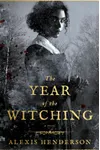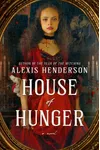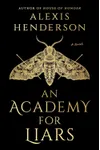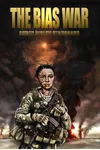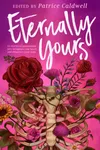Picture a Southern storyteller spinning tales of witches and haunted woods under a moss-draped moon—meet Alexis Henderson! This speculative fiction author, with a knack for dark fantasy and cosmic horror, has captivated readers with her chilling, feminist narratives. Her debut, The Year of the Witching, introduced a world where puritanical dread meets supernatural rebellion, cementing her as a rising star in gothic literature.
Born in Savannah, Georgia—one of America’s most haunted cities—Henderson’s roots pulse through her work. Her stories blend Southern Gothic vibes with fierce, complex women who defy oppressive systems, earning praise for their atmospheric depth and social commentary. Let’s dive into her journey, from ghostly inspirations to genre-defining novels.
The Making of Alexis Henderson
Growing up in Savannah, Henderson was steeped in ghost stories and Southern folklore, surrounded by the eerie charm of a city known for its spectral residents. This haunting backdrop sparked a lifelong love for gothic themes and horror, shaping her unique voice. When she wasn’t devouring books or watching horror flicks with her feline companion, she was painting or dreaming up tales of the macabre. Her passion for speculative fiction—blending fantasy, horror, and the supernatural—led her to craft stories that explore the darkness within and beyond.
Henderson’s writing career kicked off with a bang when she penned The Year of the Witching, a novel born from her fascination with witchcraft and transgenerational trauma. Inspired by works like Midnight in the Garden of Good and Evil and the Salem Witch Trials, she dove into research, studying Wicca, spellbooks, and even 18th-century shepherding to build her worlds. Her dedication to authenticity and emotional depth set the stage for her meteoric rise.
Alexis Henderson’s Unforgettable Stories
Henderson’s novels are a masterclass in blending gothic horror with feminist fire. Her debut, The Year of the Witching (2020), follows Immanuelle Moore, a young woman in the repressive, theocratic Bethel, who uncovers her mother’s ties to forbidden witches. The novel’s vivid imagery—think blood-soaked plagues and sentient forests—pairs with sharp critiques of patriarchal hypocrisy, earning comparisons to The Handmaid’s Tale and The Witch.
Her sophomore novel, House of Hunger (2022), trades puritanical dread for decadent gothic horror. It follows Marion Shaw, a bloodmaid in a vampiric aristocracy, navigating a world of dark desire and betrayal. Critics hailed it as a “Gothic masterpiece,” praising its lush prose and unflinching exploration of power dynamics. Henderson’s third novel, An Academy for Liars (2024), ventures into dark academia, weaving persuasion magic and psychological tolls into a Savannah-set tale of ambition. Her upcoming YA debut, When I Was Death, promises to expand her haunting repertoire.
Henderson’s style is unmistakable: atmospheric, gruesome, and deeply human. Her worlds pulse with Southern Gothic elements—haunted landscapes, religious fervor, and ancestral sins—while her heroines, often marginalized, wield agency against oppressive structures. Themes of rebellion, identity, and the cost of power resonate across her work, making each story a visceral journey.
Why Alexis Henderson Matters
Alexis Henderson is redefining speculative fiction with her bold, inclusive narratives. As a Black author, she brings vital representation to horror and fantasy, crafting characters like Immanuelle—mixed-race and defiant—who reflect her own longing for stories that mirror her identity. Her work challenges genre norms, blending horror’s visceral thrills with fantasy’s world-building and feminist critiques of systemic oppression.
Henderson’s impact extends beyond the page. The Year of the Witching and House of Hunger were Goodreads Choice Awards finalists, signaling her growing influence. Readers and critics alike praise her for tackling heavy themes—misogyny, racism, spiritual abuse—with nuance and heart, inspiring a new generation of writers to embrace the dark and defiant. Now based in Charleston, South Carolina, she continues to weave tales that linger like a Southern ghost.
- Born: Savannah, Georgia
- Key Works: The Year of the Witching, House of Hunger, An Academy for Liars
- Genres: Dark fantasy, cosmic horror, Southern Gothic
- Fun Fact: She collects editions of Dante’s Inferno and owns a first edition of Stephen King’s Carrie.
Ready to get lost in a world of witches, bloodmaids, and magical rebellion? Snag The Year of the Witching and dive into Alexis Henderson’s spellbinding dark fantasy!
